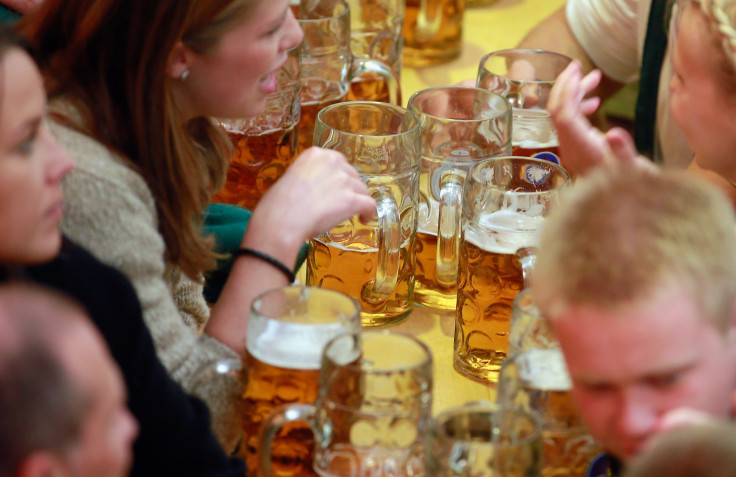Exercise Can Reduce Risk Of Alcohol-Related Death, Study Finds

Researchers have found that drinkers who do the recommended amount of exercise can reduce the risk of death due to alcohol-related cancers. Drinkers who exercise for at least 150 minutes a week also reduce their chances of dying due to any alcohol-related illnesses, according to a study.
The study published Wednesday in the British Journal of Sports Medicine analyzed data from eight nationally representative health surveys carried out in the United Kingdom from 1994 to 2006. The surveys focused on the impact of exercise and alcohol consumption on health in people aged 40 years and above.
“Our research suggests that physical activity has substantial health benefits even in the presence of potentially unhealthy behaviors such as drinking alcohol,” Emmanuel Stamatakis, senior author of the study from the University of Sydney, said in a statement.
“Among physically inactive people, we saw that the risk for cancer and all-cause mortality was higher even at relatively low levels of drinking. We also noticed a dose-response relationship between drinking alcohol and cancer deaths, that is the risk of cancer deaths increased as alcohol consumption increased. But this was not the case among physically active people,” he added.
Researchers from the University of Sydney, University College London and University of Montreal found that even among drinkers who were physically active, increased risk of death due to alcohol-related cancer or any other alcohol-related illness occurred only when they indulged in harmful levels of drinking.
The study found that moderate drinkers were 38 percent more likely to die from cancer while men who consumed over 39 standard Australian drinks (a drink containing 10 grams of alcohol) per week and women who had over 28 standard drinks per week were 74 percent more likely to die of cancer.
“We cannot suggest that doing some exercise is a license to drink more alcohol, as alcohol abuse causes significant health and societal damage. But given that so many people do drink alcohol, our study gives yet another compelling reason to encourage and empower people to be physically active and ask policy makers to invest in physical activity-friendly environments,” Stamatakis said.
© Copyright IBTimes 2024. All rights reserved.












